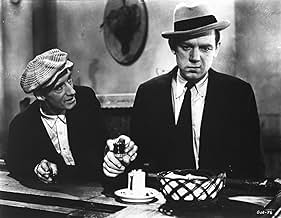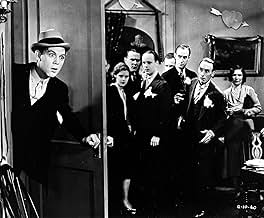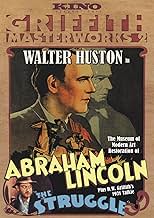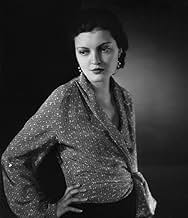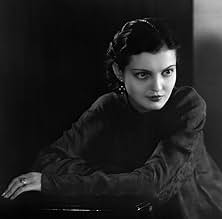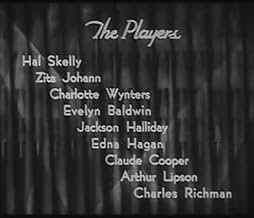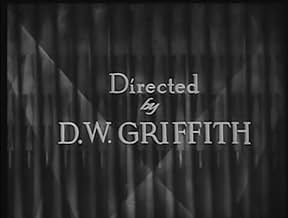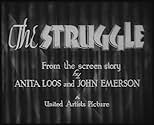Ajouter une intrigue dans votre langueA young couple's marriage is jeopardized by the husband's descent into alcoholism.A young couple's marriage is jeopardized by the husband's descent into alcoholism.A young couple's marriage is jeopardized by the husband's descent into alcoholism.
- Réalisation
- Scénario
- Casting principal
Kate Bruce
- Granny
- (non crédité)
Tammany Young
- Barfly
- (non crédité)
Avis à la une
By the time he made this film, Hollywood had D.W. Griffith right where they wanted him; a broken man. His studio was gone and he was selling out his UA shares--to make this film, I think. It's a shame that things went so wrong for him at this time, for it is evident in "The Struggle" that he was figuring out how to use this new sound gizmo. I was very impressed by his use of sound, almost Altman-like at times with overlapping dialogues. But, sadly, Hollywood had moved beyond DW, and didn't need or want him around anymore. This film is not the calibre of "Broken Blossoms" or "Intolerance", but it's a fine effort on a small scale from one of filmdom's greats.
D.W. Griffith's final film is a talkie remake of a silent short made early in his career. It's a morality play about a man's struggle with alcoholism. Interesting subject matter, ahead of its time in some ways, but probably not the kind of thing Depression-era audiences were looking to see to escape from their troubles. Today, it's a real creaker but has a lot to recommend about it. Hal Skelly, who had a short film career before dying in a tragic car/train collision in 1934, gives an impressive performance in the lead. Zita Johann, a year away from her biggest movie role in The Mummy, makes her film debut here. She gives a subtle turn as the put-upon wife (the last of Griffith's heroines who have it rough because of the crappy men in their life). Edna Hagan, who plays Skelly and Johann's daughter, is also really good. It's a fine movie, although not without its flaws. The ending is the biggest negative, in my opinion. I can overlook the creaks and groans but I don't care for happy endings when they feel unearned. Everything in the film up to that point screamed tragedy. It just felt like a cop-out.
Griffith's title of this movie lives up to what he must have gone through to get the movie made. It's a story that he could've easily made in the midst of the silent era circa 1913. It moves like his Biograph shorts, just with sound. Zita Johann is so 'Alice Joyce-like' in her performance that is the sympathetic-understanding wife type. Why doesn't she just take the daughter and leave Hal Skelly one would ask?
The later parts of the film pick up steam as opposed to the earlier parts. A group of children taunt Kelly in the street after his descent into alcoholism and loss of his job. Griffith meant to show the kids as cruel but they are more cute than malevolent. They are dressed like they are readying for a Little Rascals shoot. If you're acquainted with Griffiths numerous Biograph shorts, especially the preachy ones making moral statements, this film shows his return to this genre.
The later parts of the film pick up steam as opposed to the earlier parts. A group of children taunt Kelly in the street after his descent into alcoholism and loss of his job. Griffith meant to show the kids as cruel but they are more cute than malevolent. They are dressed like they are readying for a Little Rascals shoot. If you're acquainted with Griffiths numerous Biograph shorts, especially the preachy ones making moral statements, this film shows his return to this genre.
1st watched 1/21/2010 – 5 out of 10 (Dir-D.W. Griffith): Interesting movie about the struggle against alcoholism that doesn't quite hit the mark due to it's lack of showing us how the battle can be won. The story is about a good-ole boy named Jimmy, played by Hal Skelly, who doesn't like to put the juice down until he meets his to-be wife. She persuades him to stop drinking if they get married and he does OK until after their first child is born and then he falls back into his same old ways. He loses his job, his family, and practically his life until he's rescued again by his wife. The movie shows how dependent family members are on the alcoholics and how difficult it is for the addicted to change his ways, but it doesn't make it clear how things can change. Things just kind of get better in the movie eventually and we know this doesn't happen in real life. A valiant effort by renowned silent movie director D.W. Griffith but there doesn't seem to be a clear focus on the purpose of the film and therefore it doesn't all quite jell. He drifts from an initial focus on the prohibition to eventually being a more personal movie but never quite aces either one. The quick ending kind of ruins what could have been an important piece of film about this disease instead it's just an OK film about this struggle.
I'm glad to see that the previous comments have been charitable. It's interesting that Griffith was filming the same type of story back in 1909 at Biograph. There are several characteristic Griffith touches in this film -- for instance, the tenderness of the wife when her husband first comes home drunk to her, and in the penultimate scene at his bedside. I'm sorry this picture never had a general release because it is well worth seeing. Chaplin made a silent film as late as 1931; perhaps Griffith should have taken a chance and done that with "The Struggle," because it may have worked better as a silent. References are made to the early days of Griffith's career in the opening scenes of the film; 1911 would seem to have been more remote to a 1931 audience than, perhaps, 1987 seems to us today. A fascinating film.
Le saviez-vous
- AnecdotesThis was the final feature-length film directed by D.W. Griffith.
Meilleurs choix
Connectez-vous pour évaluer et suivre la liste de favoris afin de recevoir des recommandations personnalisées
Détails
- Date de sortie
- Pays d’origine
- Langue
- Aussi connu sous le nom de
- The Struggle
- Lieux de tournage
- Sociétés de production
- Voir plus de crédits d'entreprise sur IMDbPro
- Durée
- 1h 27min(87 min)
- Couleur
- Rapport de forme
- 1.20 : 1
Contribuer à cette page
Suggérer une modification ou ajouter du contenu manquant

